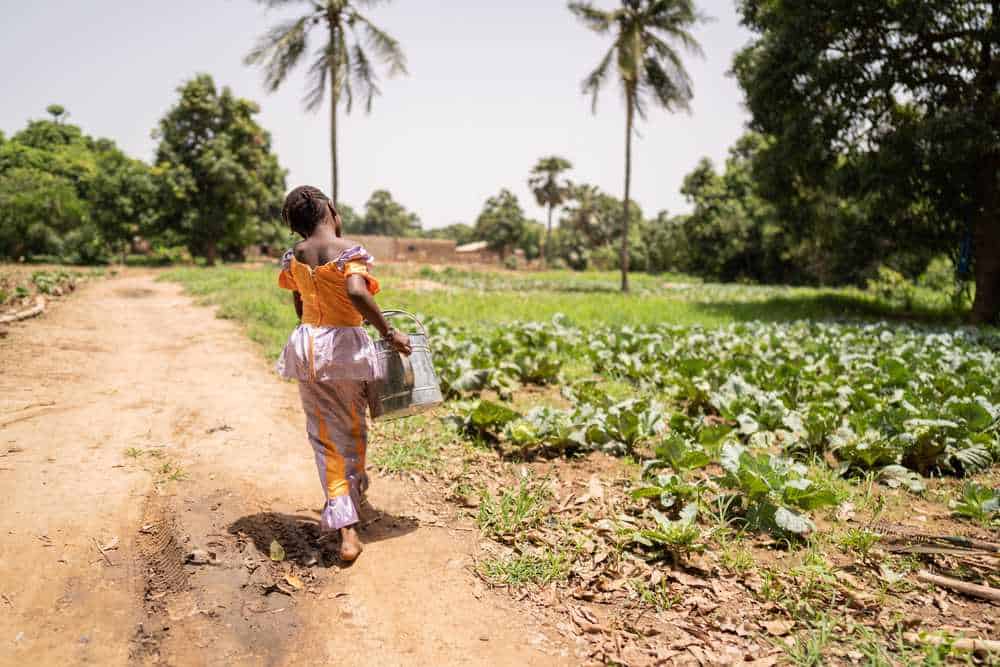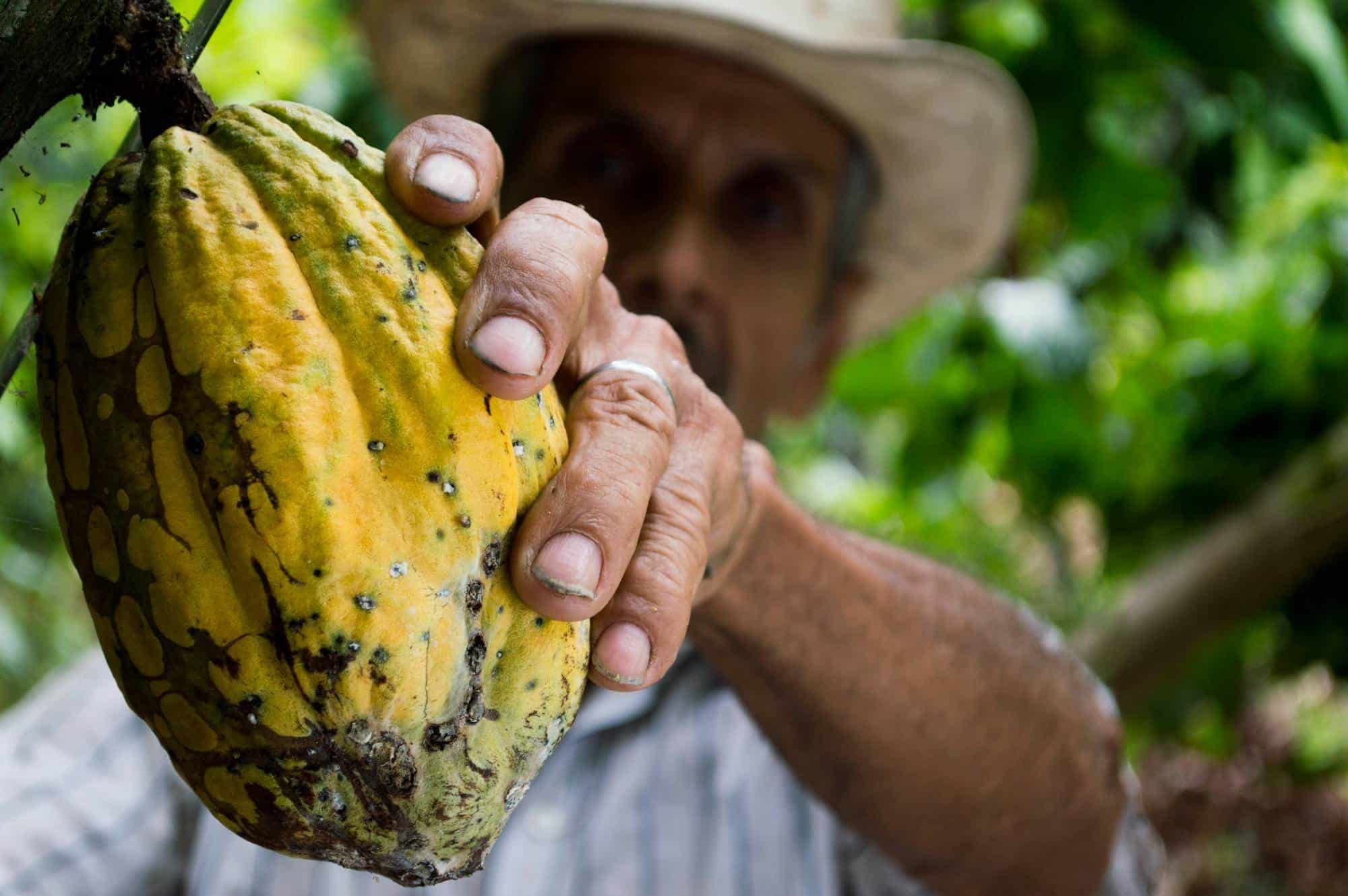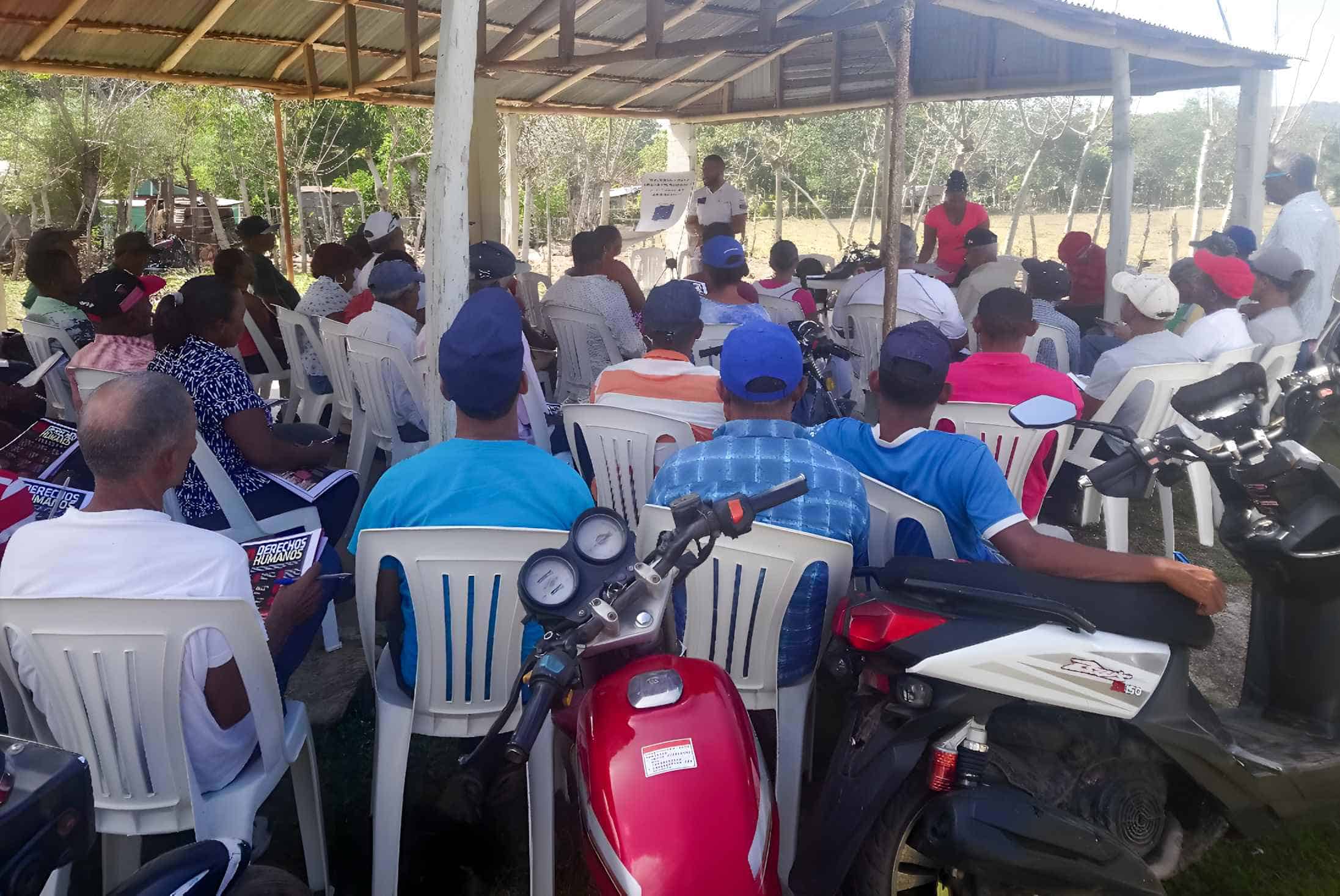
Before the sun was seen in the distance, Eduardo (pseudonym) had to be ready to go out work on a farm of cocoa in Hato Mayor alongside his father to support the family economy. At just eight years old, he believed that the only option to survive was to leave the school and workhowever, a project of a NGOchanged the course of his life. Now he spends his time studying and no longer questions what he will eat today.
Through the project called “Producing Cocoa with Focus on Children’s Rights“, where 18,000 producers from the provinces of Monte Plata, El Seibo and Hato Mayor were involved, Save The Children along with the support of the European Union, laid the foundation for the protection the rights of nearly 12,000 children in 39 communities, some of whom were forced to work in the supply chain of cocoa.
Previously, in these demarcations it was ignored that the minors of age should not work. However, the talks and workshops implemented by this NGOallowed hundreds of parents to be guided on the importance of children attending school school and carry out activities appropriate to their age.
Alba Rodriguez, executive director of Save The Children Dominican Republic, points out that they worked directly with companies and producers of cocoa to implement new practices and evaluation mechanisms to find out if there are boys and girls exercising some type of job in it agricultural sector or the value chain of this sector.

“We work with communities to create committees of protection that can safeguard the childhood in their daily lives and with the boys and girls so that they know how to identify the job childish and know the reporting channels,” he says.
Relmin de la Cruz, one of the facilitators of the talks and workshops aimed at the prevention of job childishdescribes as “very beautiful” the experience having participated in this project from 2019 to 2022.

“It was a project open to the public, involving parents, children, community workers, youth, men. It was a very interesting project because it had a direct impact on the communities,” he said.

Likewise, Paula Peña says that among her functions as a facilitator is home visits and visits to schools in order to guide children on the job childish and even know how to identify when they are victims of abuse or harassment.
Also, as a result of this project, the Ministry of Labor gave way to a label called Child Labor Free Companiesthrough which it will certify companies whose practices do not involve the labor of minors of age.
The project had a financing of 938,000 euros, (approximately 61.9 million pesos). 95% of the financing came from the European Union and 5% of Save The Children.
Statistics of the child labor
In the country, the job childish It affects 3.8% of children and adolescents from 5 to 17 years old, according to the Enhogar-MICS 2019 survey, although compared to 2014, it represents a decrease of 6.7%, the problem persists and more directly in the rural communities.
It is considered job childish if the number of hours that is dedicated to the week a child’s or girl’s economic activities is equal to or greater than the threshold defined for the age, for example, from 5 to 11 years: 1 hour or more; from 12 to 14 years, 14 hours or more; from 15 to 17 years, 43 hours or more.
Whereas, in the case of children aged 5 to 14, the threshold for domestic tasks is 21 hours or more per week, while for children aged 15 to 17, there is no threshold.
The International Labour Organization (ILO) points out that there are 160 million children who are victims of job childish79 million are in hazardous jobs, 97 million are boys and 63 million are girls.
70% of cases of job childish It occurs in the agricultural sector with 112 million, followed by 20% in the services sector (31.4 million) and 10% with 16.5 million in the industrial sector.
According to data from the ILO report, around 28% of children aged 5 to 11 and 35% of children aged 12 to 14 who work are not enrolled in school. Unicef 2021.

Legal framework
He Labor Code of the Dominican Republic establishes in its article 245 the prohibition of job of minors 14 years old. In addition, in its article 246, it specifies that minors between 14 and 16 years old can work provided that they have authorization from their parents or guardians and that their schooling is not affected. Labor Code It also regulates the working conditions and schedules for the minors of 18 years, prohibiting the job nocturnal and in dangerous activities.



